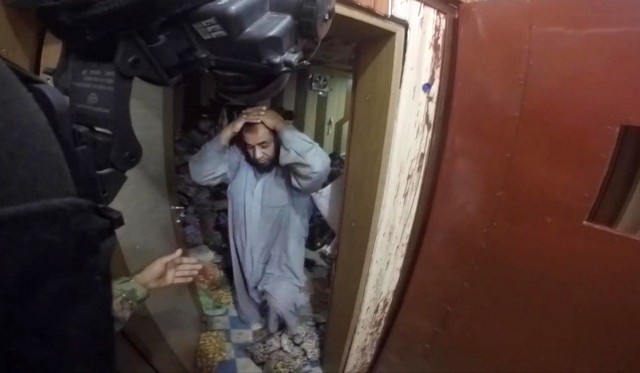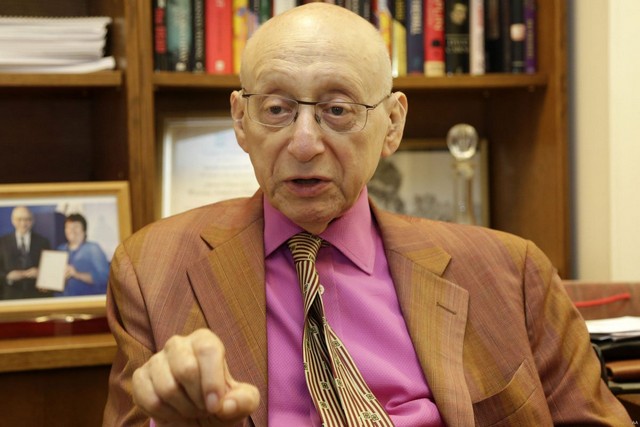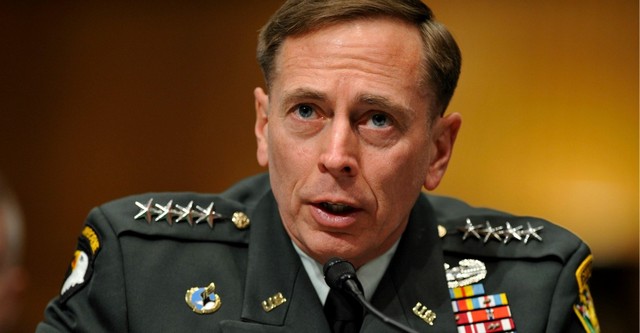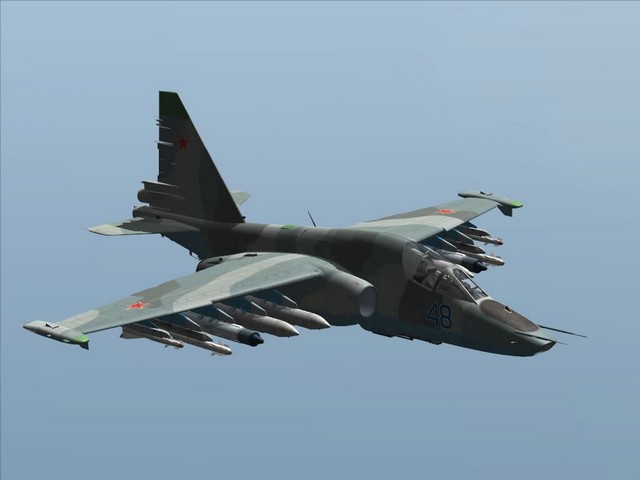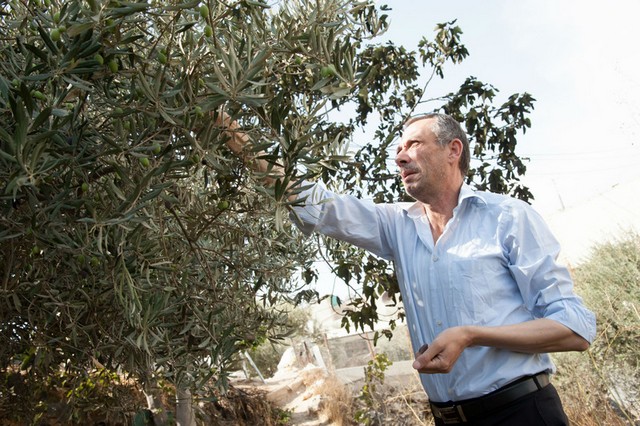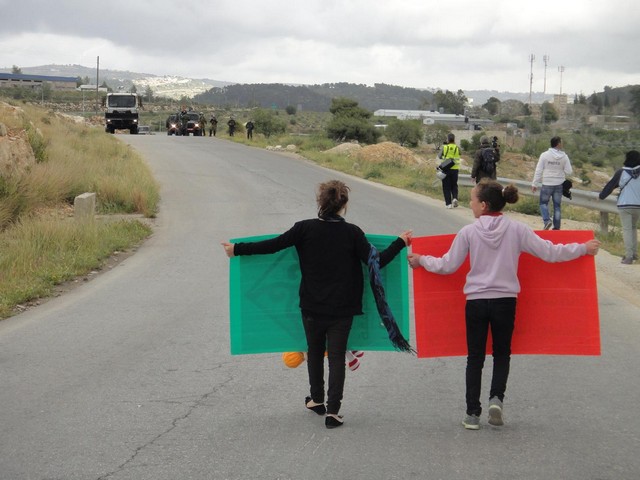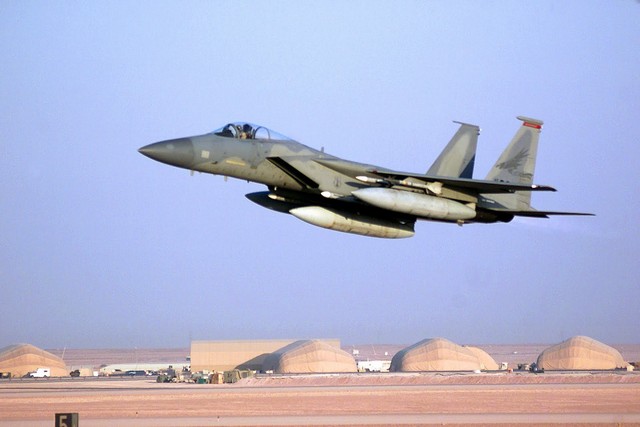By James Cogan
Yesterday’s US deployment of the destroyer USS Lassen and surveillance aircraft into the 12-nautical mile zone surrounding the Chinese-controlled Subi and Mischief reefs in the South China Sea has qualitatively escalated tensions across Asia.
The aim of the US action is to humiliate the Chinese regime and present it with only two options: either make a forceful response or bow down to Washington’s flagrant trampling on its long-standing sovereignty claims. The pretext for the military provocation is the claim that the US is asserting its “right of freedom of navigation” in international, not Chinese, waters. This assertion has no more credibility than the claims that Iraq was attacked because of “weapons of mass destruction” or that the US waged war on Libya to defend “human rights.”
Beijing has responded diplomatically and militarily. China’s foreign ministry spokesperson Lu Kang told a press conference yesterday that the USS Lassen “illegally entered” Chinese waters. He stated: “The Chinese side will firmly respond to any deliberate provocation by any country… and take all necessary measures as needed.” Beijing, he declared, urged the US to “honour its commitment of not taking sides on disputes over territorial sovereignty so as to avoid any further damage to China-US relations and regional peace and stability.”
Last night, the US ambassador to China, Max Baucus, was summoned to the Foreign Ministry to receive a formal expression of “strong discontent” from the Chinese government over Washington’s provocation.
The editorial of today’s Chinese state-controlled Global Times asserted: “Beijing should deal with Washington tactfully and prepare for the worst. This can convince the White House that China, despite its unwillingness, is not frightened to fight a war with the US in the region, and is determined to safeguard its national interests and dignity.”
Beijing, the Global Times declared, should “track the US warships … launch electronic interventions, and even send out warships, lock them by fire-control radar and fly over the US vessels.”
The Chinese Communist Party (CCP) newspaper, the People’s Daily, reported today that the Chinese military ordered two destroyers, the Lanzhou and Taizhou, “to warn the trespassing US warship.” A US official reported that the Chinese vessels “shadowed” the Lassen yesterday but kept a “safe distance.”
The reckless calculation in Washington is that such statements from the Chinese regime are nothing more than rhetoric to try to appease domestic nationalist outrage over the US actions.
The Obama administration and the Pentagon indicated that the Lassen’s deployment is only the start of repeated intrusions into Chinese-claimed areas, with the intention of compelling China to bow to US military dominance over the South China Sea. An unnamed Defense Department official told journalists: “I would expect that this becomes a regular operation.”
Retired Chinese Rear Admiral Yang Yi, a researcher at the People’s Liberation Army National Defense University, responded by telling the Washington Post that if incursions did become “a regular thing, military conflict in the region is inevitable and the US would be the one who started it.”
The Australian and Japanese navies, at Washington’s request, may participate in future and larger-scale intrusions. While only the Lassen was used in yesterday’s provocation, dozens of US and Japanese warships, including the aircraft carrier USS Ronald Reagan, as well as two Australian frigates, are within striking range of the South China Sea,.
The Australian government immediately declared its backing for the US action. Defence Minister Marise Payne stated that while Australia was not part of yesterday’s operation, it “strongly supports” the “rights” of freedom of navigation and overflight and “continues to cooperate with the United States and regional partners on maritime security.” Press reports indicated that Payne and Australian Foreign Minister Julie Bishop were thoroughly briefed on the planned South China Sea provocation when they were in Washington for ministerial talks earlier this month.
Japanese Chief Cabinet Secretary Yoshihide Suga told a news conference that Japan was “exchanging information” with Washington and “closely monitoring the issue before we decide how to proceed.” Prime Minister Shinzo Abe’s government has stated previously that it is prepared to conduct “freedom of navigation” military operations, either alongside or independently of the US.
Kaoru Imori, from Japan’s Meiji Gakuin University, told the Chinese Xinhua news agency yesterday: “The advantage now for the US is that, in essence at least, it has a second de-facto military in the form of Japan—a country with a healthy military budget and cutting-edge means to both produce and export military hardware.”
Japan and Australia are the key partners of the US “pivot” or “rebalance” to Asia. Both countries provide crucial bases for the American military and have integrated their armed forces into the US “AirSea Battle” plan. AirSea Battle is a detailed and now well-rehearsed outline of how the US and its allies will launch air and sea attacks on mainland Chinese military facilities in the event of war. The plan also involves imposing a naval blockade to prevent Chinese shipping passing between the Indian and Pacific Oceans, thus starving China of essential imports of energy and raw materials.
The timing of the US operations in the South China Sea underscores the fact that the “pivot” is motivated by the determination of American imperialism, backed at this point by its regional allies, to maintain its post-World War II dominance in Asia. The growth of China’s global economic and geopolitical influence over the past 15 years is viewed in US ruling circles as an unacceptable potential challenge. The ultimate objective of the US confrontation with Beijing is to return China to the status of a semi-colony, economically under the sway of American banks and corporations and politically subordinated to Washington’s dictates.
The deployment of the Lassen was ordered just days after Chinese President Xi Jingping’s tour of Britain and just days ahead of highly touted visits to China by German Chancellor Angela Merkel and French President Francois Hollande. Following the sweeping trade and investment agreements struck between Britain and China, the People’s Daily editorialised yesterday—before the US provocation—that the “major European countries are vying for its attention” and that closer economic and political relations with Europe could “offset the restraints imposed by the US-Japan alliance on China.”
Now Merkel, along with the head of Volkswagen and dozens of other German corporate executives, will arrive in Beijing today under conditions in which a military clash could take place between China and the US, Berlin’s ally in the NATO alliance. France’s Hollande is due to visit on November 2.
Over the next two weeks, US President Barack Obama will attend the Asia Pacific Economic Summit in the Philippines, the US-ASEAN (Association of South East Asian Nations) Summit and the East Asia Summit in Malaysia. US demands that Asian states fall in behind its actions in the South China Sea will figure prominently at these events, either officially or in backroom talks. Beijing will utilise the two regional summits it attends to apply counter-pressure.
China will expect to be supported by Russia, which has forged closer ties with Beijing as Moscow has come under its own threats and military provocations from the US and NATO in Eastern Europe. Andrei Klimov, a leading Russian parliamentarian close to President Vladimir Putin, told TASS news agency yesterday: “US sabre rattling near the borders of China—a permanent member of the UN Security Council—is likely to draw questions from another UN SC member, Russia. Nobody should feel free to make voyages there without an invitation.” The US, Klimov said, is “playing with fire.”
A fraught process of diplomatic and military brinksmanship is now in motion that could lead to an open clash between nuclear-armed powers and draw countries across the entire Asian region and internationally into a catastrophic war.
28 October, 2015
WSWS.org


